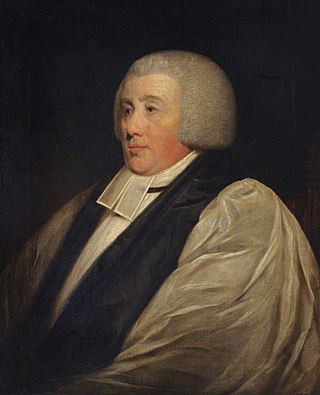This article needs additional citations for verification .(March 2023) |
William Dakins (died 1607) was an English academic and clergyman, Gresham Professor of Divinity and one of the translators of the King James Bible .
This article needs additional citations for verification .(March 2023) |
William Dakins (died 1607) was an English academic and clergyman, Gresham Professor of Divinity and one of the translators of the King James Bible .
He is conjectured (Thompson Cooper in the Dictionary of National Biography ) to have been the son of William Dakins, M.A., vicar of Ashwell, Hertfordshire. He was educated at Westminster School, whence he was elected in 1586 to a scholarship at Trinity College, Cambridge, where he proceeded B.A. in 1591. He became a minor fellow of Trinity on 3 October 1593, and a major fellow on 16 March 1594. In 1594 he commenced M.A., and in 1601 proceeded B.D.
He became Greek lecturer of his college (an annual office) on 2 October 1602, and vicar of Trumpington, Cambridgeshire, in 1603. On the resignation of Hugo Gray he was chosen to succeed him as professor of divinity in Gresham College, London, on 14 July 1604. He was recommended by the vice-chancellor and several heads of colleges in Cambridge, but also by some of the nobility and even by King James I himself; Christopher Hill comments that James was probably glad to have a "harmless academic" appointed, after the evangelical Anthony Wotton and Gray. [1]
He was one of the learned men employed in the authorised translation of the Bible, a member of the Second Westminster Company, to which the epistles of St. Paul and the canonical epistles were assigned. In 1605 he resigned the vicarage of Trumpington, and on 2 October 1606 became junior dean of Trinity College. He died in February 1607.
The Regius Professorships of Divinity are amongst the oldest professorships at the University of Oxford and the University of Cambridge. A third chair existed for a period at Trinity College Dublin.

John Overall (1559–1619) was the 38th bishop of the see of Norwich from 1618 until his death one year later. He had previously served as Bishop of Coventry and Lichfield, as Dean of St Paul's Cathedral from 1601, as Master of Catharine Hall from 1598, and as Regius Professor of Divinity at Cambridge University from 1596. He also served on the Court of High Commission and as a Translator of the King James Version of the Bible.
William Bedwell was an English priest and scholar, specializing in Arabic and other "oriental" languages as well as in mathematics.
Francis Burleigh, sometimes spelled Burghley, was born in London around 1552. He studied at St. Catherine's College, Cambridge, then Queens' College, Cambridge, and finally Pembroke College, Cambridge. "He graduated B.A. in 1583, proceeded M.A. in 1587 and B.D. in 1594. He eventually became doctor of divinity in 1607 shortly after he had commenced his work on the translation".

John Richardson was a Biblical scholar and a Master of Trinity College, Cambridge from 1615 until his death.

William Lort Mansel was an English churchman and Cambridge fellow. He was Master of Trinity College, Cambridge from 1798 to his death in 1820, and also Bishop of Bristol from 1808 to 1820.
Dr Samuel Brooke (1575–1631) was a Gresham Professor of Divinity, a playwright, the chaplain of Trinity College, Cambridge and subsequently the Master of Trinity (1629–1631). He was known to be an Arminian and anti-Calvinist. In 1631 he was appointed archdeacon of Coventry.
Robert Beaumont was Master of Trinity College, Cambridge from 1561 to 1567 and twice Vice-Chancellor of the University of Cambridge. During this time, he commissioned Hans Eworth to copy the 1537 Hans Holbein portrait of King Henry VIII. This copy was bequeathed to Trinity College where it hangs to this day.
John Redman was a Tudor churchman and academic, the first Master of Trinity College, Cambridge (1546–1551).
Richard Holdsworth was an English academic theologian, and Master of Emmanuel College, Cambridge from 1637 to 1643. Although Emmanuel was a Puritan stronghold, Holdsworth, who in religion agreed, in the political sphere resisted Parliamentary interference, and showed Royalist sympathies.

Thomas Ravis was a Church of England bishop and academic. He was among those engaged in translating the King James Bible.
John Cowell was an English jurist.
Joshua Hoyle was a Professor of Divinity at Trinity College Dublin and Master of University College, Oxford during the Commonwealth of England.
Clement Corbet was an English jurist.
Thomas Horton D.D. was an English clergyman, Professor of Divinity at Gresham College in London, and President of Queens' College, Cambridge.
Anthony Wotton was an English clergyman and controversialist, of Puritan views. He was the first Gresham Professor of Divinity. Christopher Hill describes him as a Modernist and Ramist.
Hugh Gray was an English churchman and academic, and the second Gresham Professor of Divinity.

Humphrey Gower (1638–1711) was an English clergyman and academic, Master of Jesus College, Cambridge, and then St. John's College, Cambridge, and Lady Margaret's Professor of Divinity.
Joseph Rawson Lumby (1831–1895) was an English cleric, academic and author and divine, Norrisian Professor of Divinity from 1879 and then Lady Margaret's Professor of Divinity from 1892.
Dakins may refer to: